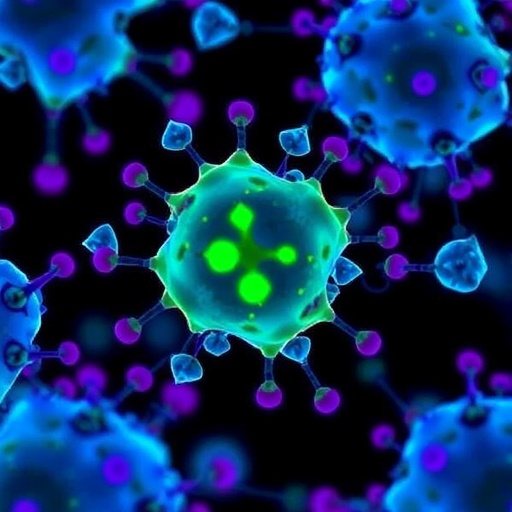Southwest Research Institute and The University of Texas at San Antonio Collaborate to Revolutionize CAR T-cell Therapy Production with Smart Biosensor Coating Technology
Immunotherapy, particularly Chimeric Antigen Receptor (CAR) T-cell therapy, has emerged as a groundbreaking approach to treating various cancers by harnessing the patient’s own immune system. However, the manufacturing process of these personalized therapies remains extremely expensive and labor-intensive, limiting accessibility for many patients. In an ambitious joint effort, researchers at Southwest Research Institute (SwRI) and The University of Texas at San Antonio (UT San Antonio) are developing a novel smart biosensor coating designed to automate and optimize the production of CAR T-cells. This breakthrough could significantly reduce costs and improve the reliability of immunotherapy manufacturing.
Traditional CAR T-cell therapy involves genetically engineering T lymphocytes to target specific cancer antigens, effectively enabling the patient’s immune system to attack tumor cells. Despite its therapeutic promise, current production methods rely on flow cytometry, an expensive and technically demanding technique that requires skilled operators and complex equipment. Flow cytometry also depends heavily on manual labeling with antibodies to distinguish CAR T-cells from other immune and cancer cells, introducing risks of human error and procedural delays. The result is a manufacturing bottleneck that drives therapy costs into the hundreds of thousands, even up to a million dollars per patient.
The pioneering research team, led by SwRI Research Engineer Carlos M. Cantu and Dr. Gabriela Romero Uribe, Associate Professor at UT San Antonio’s Klesse College of Engineering and Integrated Design, aims to fundamentally transform this process by employing a sophisticated smart biosensor coating. This coating leverages advanced Quartz Crystal Microbalance (QCM) technology, a well-established sensing method primarily used to detect minute mass changes on a surface with high sensitivity. Although QCM instruments have existed since the mid-20th century, particularly gaining prominence during the COVID-19 pandemic for virus detection, the integration of smart coatings marks a novel application in biomedical manufacturing.
The novel biosensor coating functions as a dynamic interface within bioreactors, enabling real-time, continuous monitoring of cell characteristics during immunotherapy production. Unlike conventional sampling and endpoint assays, this system facilitates a completely closed-loop process where cell populations—especially genetically modified CAR T-cells—can be characterized and quantified without interrupting manufacturing. The ability to distinguish CAR T-cells from non-engineered T-cells or contaminant cells on the fly means manufacturers can optimize cell propagation, enhance quality control, and drastically reduce the dependence on manual interventions.
One of the core advantages of this innovation is its automation potential. By embedding intelligence within the biosensor coating, coupled with integration into existing reactor platforms, the monitoring process becomes largely hands-off and user-independent. This dramatically diminishes possibilities for human error—a major cost driver and hurdle in scaling autologous cell therapies globally. Moreover, continuous sensing offers the prospect of refined process control, allowing manufacturers to modulate growth conditions dynamically to maximize therapeutic cell yield and potency.
The collaboration reflects the interdisciplinary nature of modern biomedical engineering, requiring expertise in surface chemistry, sensor physics, cell biology, and clinical manufacturing processes. Dr. Romero Uribe emphasizes how this sensor platform not only targets CAR T-cell production efficiency but is also adaptable across a broad spectrum of immunotherapies. Its modular design could pave the way for deploying biosensor coatings in various cell-based products, including other adoptive cell therapies and potentially vaccine development workflows.
Financial backing for this initiative comes from the Connect program, a prestigious research grant sponsored jointly by UT San Antonio’s Office of Research and Innovation and SwRI’s Office of the Executive Vice President and Chief Operating Officer. The program encourages cross-disciplinary innovation, recognizing that the future of biomedical science hinges on converging engineering innovations with clinical applications. The smart biosensor project was one of only three awarded in 2025, underscoring its high impact potential.
The economic implications of this technology could be transformative. CAR T-cell therapies currently represent some of the most expensive medical treatments worldwide, largely due to complex production and quality assurance challenges. Reducing manufacturing costs through sensor-enabled automation may democratize access to personalized therapies, allowing broader patient populations suffering from hematologic malignancies and solid tumors to benefit. Furthermore, as biosensor coatings streamline production, they may also accelerate regulatory approvals by providing robust, real-time data on product consistency.
Technically, the sensor’s surface modifications involve biofunctional layers engineered to bind selectively to targeted cell markers expressed on CAR T-cells. These selective interactions cause subtle changes in the mass and viscoelastic properties of the coating, detected by shifts in QCM resonance frequency. The use of real-time sensor feedback facilitates rapid detection protocols, avoiding delays inherent to antibody tagging and flow cytometric analysis. Such mechanistic advances mark a shift towards intelligent manufacturing in cell therapies, embodying principles of Industry 4.0 in biopharmaceutical contexts.
Looking ahead, the SwRI and UT San Antonio teams are focused on integrating their coating technology with commercially available bioreactors and scaling the system for industrial use. Ongoing research also targets expanding sensor specificity and sensitivity to cover a wider variety of cell subpopulations, including subsets involved in immune regulation or tumor microenvironment modulation. This aligns with the long-term vision of creating a universal platform for personalized cell therapy monitoring and quality assurance.
In summary, this collaboration stands at the cutting edge of converging biosensing and cellular engineering technologies. By enabling continuous, automated, and precise characterization of CAR T-cells during production, the smart biosensor coating promises to reduce costs, increase manufacturing robustness, and ultimately improve patient outcomes. As immunotherapy continues its rapid evolution, novel innovations like this will be essential to transitioning personalized medicine from experimental medicine into standard clinical practice.
Subject of Research: Development of smart biosensor coatings for automated monitoring and characterization of CAR T-cells during immunotherapy production.
Article Title: Southwest Research Institute and UT San Antonio Develop Smart Biosensor Coating to Revolutionize CAR T-cell Therapy Manufacturing
News Publication Date: September 15, 2025
Web References: https://www.swri.org/markets/biomedical-health/pharmaceutical-development/biochemistry-bioengineering/biologics-manufacturing-services
Image Credits: Southwest Research Institute
Keywords: Chimeric antigen receptor therapy, Biosensors, Immunotherapy, T cell activation, T cell responses




